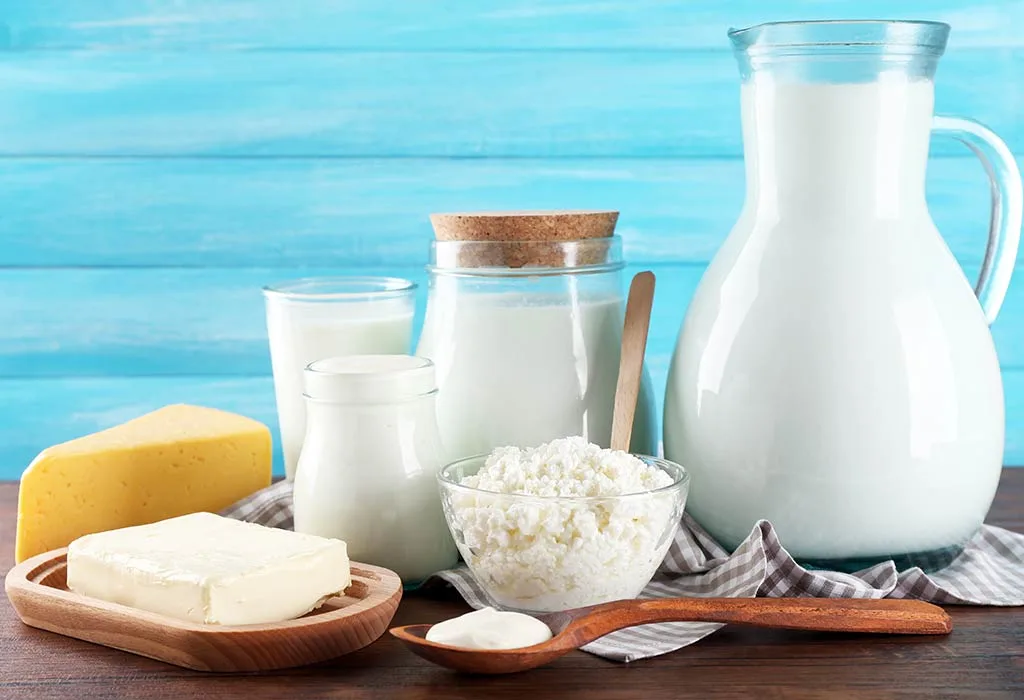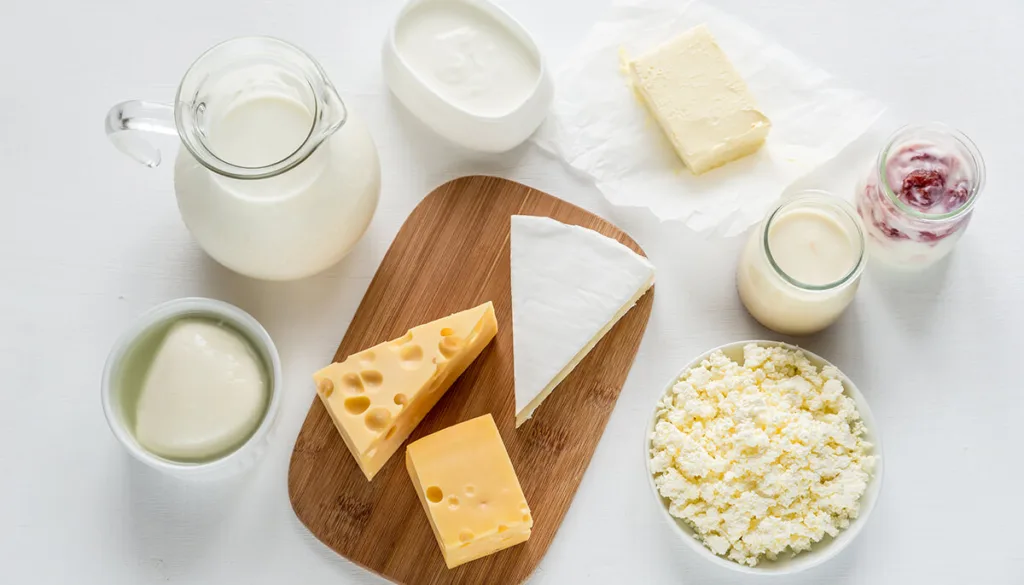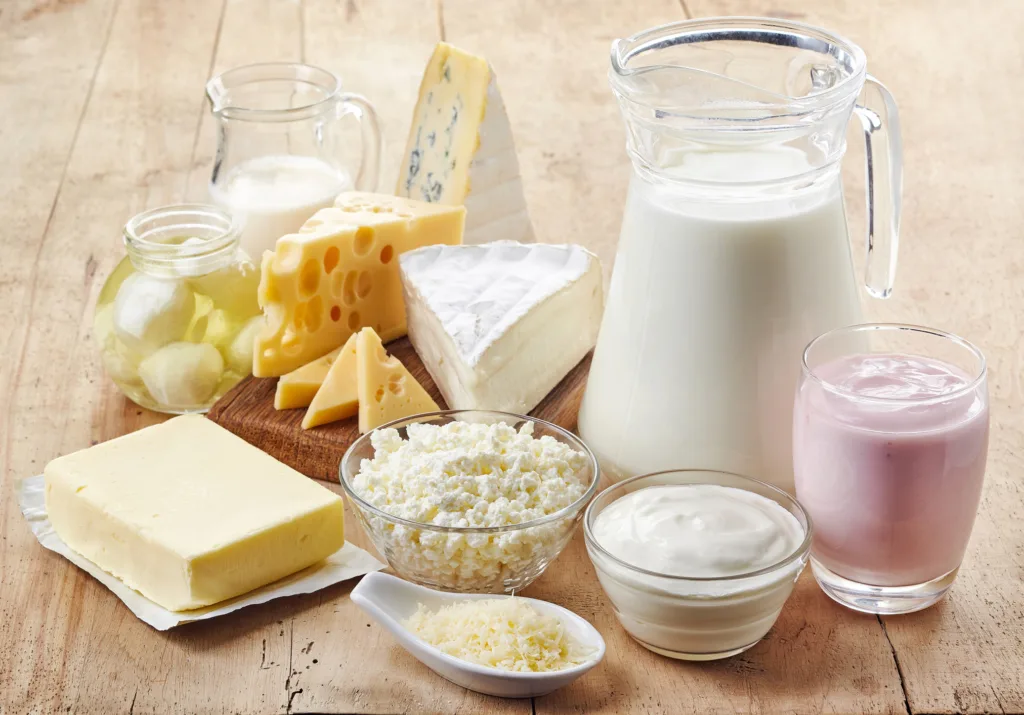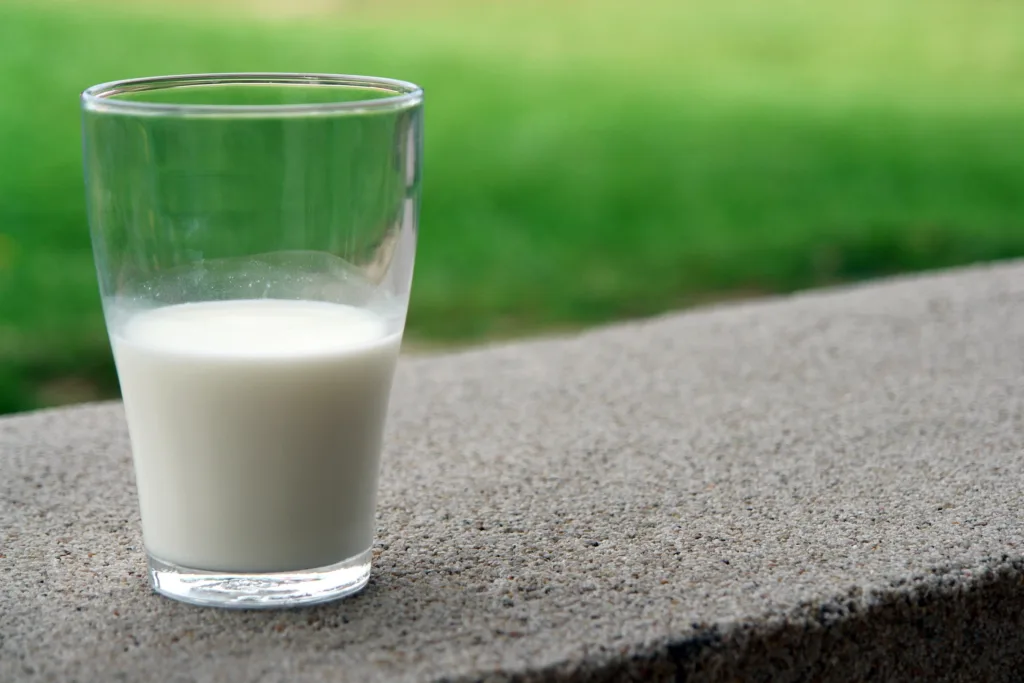Dairy is everywhere. From creamy yogurt to gooey cheese, it’s hard to imagine life without these tasty staples. But when you’re trying to lose weight, dairy can feel like your frenemy. Should you ditch it or indulge? Does it help or hinder your goals? Let’s explore the truth about dairy and weight loss.

Introduction
Like many of us, you’ve probably had a love-hate relationship with dairy at some point. Cheese draws you in with its melty, savory comfort. Yet you wonder if eating yogurt will undo your hard work at the gym. It’s confusing!
The good news is, science illuminates this murky topic. Understanding how dairy affects your body equips you to make the best choices for your unique needs and goals. Knowledge is power!
Dairy is deeply embedded in many cultures’ cuisines. But with rising obesity rates worldwide, more people scrutinize dairy’s place in a healthy diet. Does it belong in a sustainable weight loss plan? Or is it better to avoid it altogether when you’re trying to slim down?
Let’s unpack the nutrient profile of dairy first. This tells an insightful story about how dairy may influence weight control mechanisms in your body.
The Science Behind Dairy and Weight Loss
Dairy’s nutritional pros and cons shape its role in weight management. Here’s what’s inside those creamy milk products:
Protein = Muscle Power
Milk, yogurt, cheese and other dairy foods contain high-quality protein. This protein builds and maintains metabolically active muscle mass when paired with strength training. More muscle revs up your resting metabolism, helping you burn extra calories around the clock.
Plus, protein is satiating, meaning it keeps you feeling fuller longer after eating. This satisfaction can curb overeating and decrease unhealthy cravings. Research confirms lean people tend to eat more protein on average.
Calcium & Vitamin D: Fat Burners?
Dairy is one of the most convenient dietary sources of bone-strengthening calcium and vitamin D. Emerging research reveals these nutrients may also play a role in fat breakdown.
Studies suggest calcium and vitamin D from dairy foods could help inhibit the creation and accumulation of new fat cells in the body. Exciting new evidence also indicates calcium possibly influences “hunger hormones” like adiponectin, leptin and cortisol. The impact on these appetite-regulating hormones may promote feelings of fullness.
So in summary, dairy naturally contains beneficial protein, calcium, vitamin D and other nutrients. But is loading up on milk, cheese and yogurt a magic bullet for easy weight loss? Let’s explore some conflicting viewpoints.

The Controversy: Is Dairy Helpful or Harmful for Weight Loss?
The great dairy debate rages on. Despite beneficial nutrients, dairy’s saturated fat and calorie content give some experts pause. Different studies arrive at mixed conclusions, fueling the controversy:
- “Milk boosts fat burning!” vs “But the fat and calories can lead to weight gain!”
- “Yogurt curbs appetite!” vs “But dairy causes inflammation that may hinder weight loss for some people!”
- “Cheese packs protein for building muscle!” vs “It also provides a lot of saturated fat!”
- “Dairy nutrients may help burn fat!” vs “Dairy can spike insulin and encourage fat storage!”
The reality is, dairy’s effects on weight depend on the individual. Your genetics, underlying health conditions, medications, microbiome, and overall diet and lifestyle all influence how your body responds to dairy foods.
For optimal weight management results, it’s wise to choose low or nonfat dairy options that suit your taste buds and health goals. Listen to your body’s signals and adjust your intake if needed.
Best Dairy Foods for Weight Loss and Body Composition
What’s the smartest way to eat dairy foods if you want to lose weight, burn fat and maintain calorie-torching muscle? Here are some of your top options:
Low-Fat Dairy: Lean Protein and Calcium
Choosing skim or low-fat versions of milk, yogurt, cottage cheese, and hard cheeses allows you to get dairy’s benefits without all the saturated fat and calories. You’ll gain muscle-building protein, satiating calcium and potentially fat-burning vitamin D, without the unwanted extra fat and calories. It’s a win-win for weight watchers!
Greek Yogurt: Crazy for Protein
With around twice the protein of regular yogurt, a serving of Greek yogurt can help squash hunger, promote lean muscle growth, boost your metabolism and keep your blood sugar stable. These are all desirable effects for weight control and body composition. Just stick to plain, unsweetened varieties of Greek yogurt. Sweeten it yourself at home with fresh fruit, cinnamon and a drizzle of honey if desired.
Milk: Fat Content Matters
The relationship between drinking milk and managing your weight is complicated. Some observational studies link milk consumption to lower body weight and fat. However, results remain mixed.
Milk does provide a convenient source of satiating protein and bone-strengthening calcium. However, the natural lactose sugar and calories can add up quickly if you drink large portions or multiple glasses daily.
For weight loss, experts recommend limiting milk to 1 or 2 servings per day at most as part of an overall reduced calorie diet. The fat content also matters. Skim or low-fat milk aligns far better with weight management goals compared to full-fat, whole milk.

Dairy Alternatives for Dieters with Sensitivities
If traditional dairy foods pose challenges for your weight loss efforts or personal dietary needs, no worries! You can still get in on dairy’s benefits through nutritious plant-based alternatives.
Plant-Based Milk Options
With the rise of vegan diets and concerns over lactose intolerance, plant-based “milks” made from almonds, coconuts, oats, soy and more have flooded the market.
Opting for unsweetened versions of these popular dairy alternatives keeps calories and carbs in check. Almond and soy milk tend to be naturally higher in protein compared to other plant milks.
Still, all plant-based milks are relatively low in protein compared to cow’s milk. If you go dairy-free, make sure to get enough protein from other whole food sources like beans, lentils, nuts, seeds and high-protein grains like quinoa. Don’t rely solely on plant milks if you’re actively trying to build muscle and lose weight.
Lactose-Free Dairy
This allows those with lactose intolerance to enjoy the nutritional benefits of dairy without the unpleasant gastrointestinal side effects.
Lactose-free milk, yogurt, cheese and cottage cheese contain similar macros and micronutrients to regular dairy, without the compounds that provoke digestive distress. This makes lactose-free dairy foods ideal for those wanting dairy’s protein and calcium for weight management and muscle maintenance, but who can’t properly digest regular products.
Tips for Incorporating Dairy into a Weight Loss Diet
If you don’t have sensitivities and want to enjoy sensible portions of nutritious dairy foods as part of your weight loss plan, here are some easy ways to incorporate it wisely:
- Choose low-fat, reduced calorie versions of milk, cheese, cottage cheese and yogurt for a protein and calcium boost without excess calories or fat.
- Mix plain nonfat Greek yogurt with fresh berries, chia seeds, walnuts or cinnamon as a satisfying high protein breakfast or snack.
- Add a sprinkle of shredded part-skim mozzarella cheese to salads, omelets, healthy whole grain pasta dishes and soups for a calcium kick.
- Enjoy cottage cheese topped with sliced tomatoes or berries instead of chips or sweets for a portable protein snack.
- Frozen yogurt makes a healthier dessert option compared to ice cream – just stick to a modest portion size.
- Use plain Greek yogurt and small amounts of heart-healthy fats like olive oil or mashed avocado to make tangy salad dressings and dips.
Balance and Moderation Are Key
At the end of the day, enjoying moderate amounts of low or nonfat dairy foods as part of an overall balanced, reduced calorie diet is unlikely to negatively impact weight loss for most healthy people without sensitivities.
But is dairy mandatory for weight management? Not necessarily.
If you currently consume large amounts of full-fat dairy and aren’t losing weight, you may benefit by cutting back on high-fat cheeses and whole milk. Consider switching to lower fat versions and keeping portions small if you want to keep enjoying dairy.
Listen to your body’s unique signals. Dairy does not need to be eliminated fully to lose weight – but moderation and balance is key for long-term success.
The Bottom Line on Dairy and Weight Control
Despite ongoing controversies, most reputable health authorities sanction the intake of low and nonfat dairy foods for weight management and general health.
When consumed in sensible portions as part of an overall nutritious and balanced diet, the high-quality protein, calcium, vitamin D and other nutrients naturally found in dairy appear beneficial for:
- Building and maintaining a healthy metabolism
- Controlling appetite and hunger
- Promoting fat burning and maintaining calorie-burning lean muscle mass
The key is limiting intake of full-fat options like whole milk, cream and butter while prioritizing nonfat or low-fat versions of yogurt, milk, cottage cheese and hard cheeses.
If traditional dairy disagrees with your body, don’t stress. You have many nutritious plant-based alternatives at your fingertips today.
At the end of the day, personal factors will dictate how your unique body responds to different dairy products and serving sizes. Armed with the facts, you can feel empowered to make dairy choices that complement your diet, lifestyle and wellness goals.

Wrapping Up: Key Takeaways on Dairy and Weight Loss
To close this out, here are the big takeaways on how to approach dairy for effective weight management:
- Dairy foods provide beneficial nutrients like protein, calcium and vitamin D but also contain saturated fat and calories – choose low and nonfat options to maximize nutrition versus calories.
- Different people respond differently to dairy – lifestyles, underlying health, genetics and more all play a role. Listen to your body’s signals.
- For the best weight results, prioritize nonfat Greek yogurt, nonfat milk, part-skim cheese and low-fat cottage cheese.
- Plant-based or lactose-free dairy alternatives enable those who can’t tolerate regular dairy to still get nutritional benefits.
- Moderation and balance is key – dairy doesn’t need to be eliminated fully for weight loss but high intakes of full-fat dairy may need to be limited by some individuals.
- There is no “one size fits all” optimal dairy intake for weight loss. Pay attention to your unique body and needs.
Okay, we’ve covered a lot of ground here! I hope this post brought you more clarity on how to navigate dairy for your weight loss goals. Wishing you all the best on your journey.
For more practical tips and inspiration subscribe to my newsletter. And check out my other in-depth nutrition and healthy living blogs if you enjoyed this one. Thanks for reading!
Join Us!
If you enjoyed this post breaking down the truth about dairy and weight loss, I sincerely hope you’ll subscribe to my free weekly wellness newsletter!
You’ll receive exclusive content on intuitive eating, nourishing recipes, workout tips and more straight to your inbox. This newsletter is carefully crafted by me each week to provide helpful, uplifting advice to enhance your health and support your journey.
Sign up now by clicking here and start receiving motivation every week! Thanks for reading. Wishing you the very best!
Thank you for reading this post, don't forget to subscribe to our free newsletter
!
